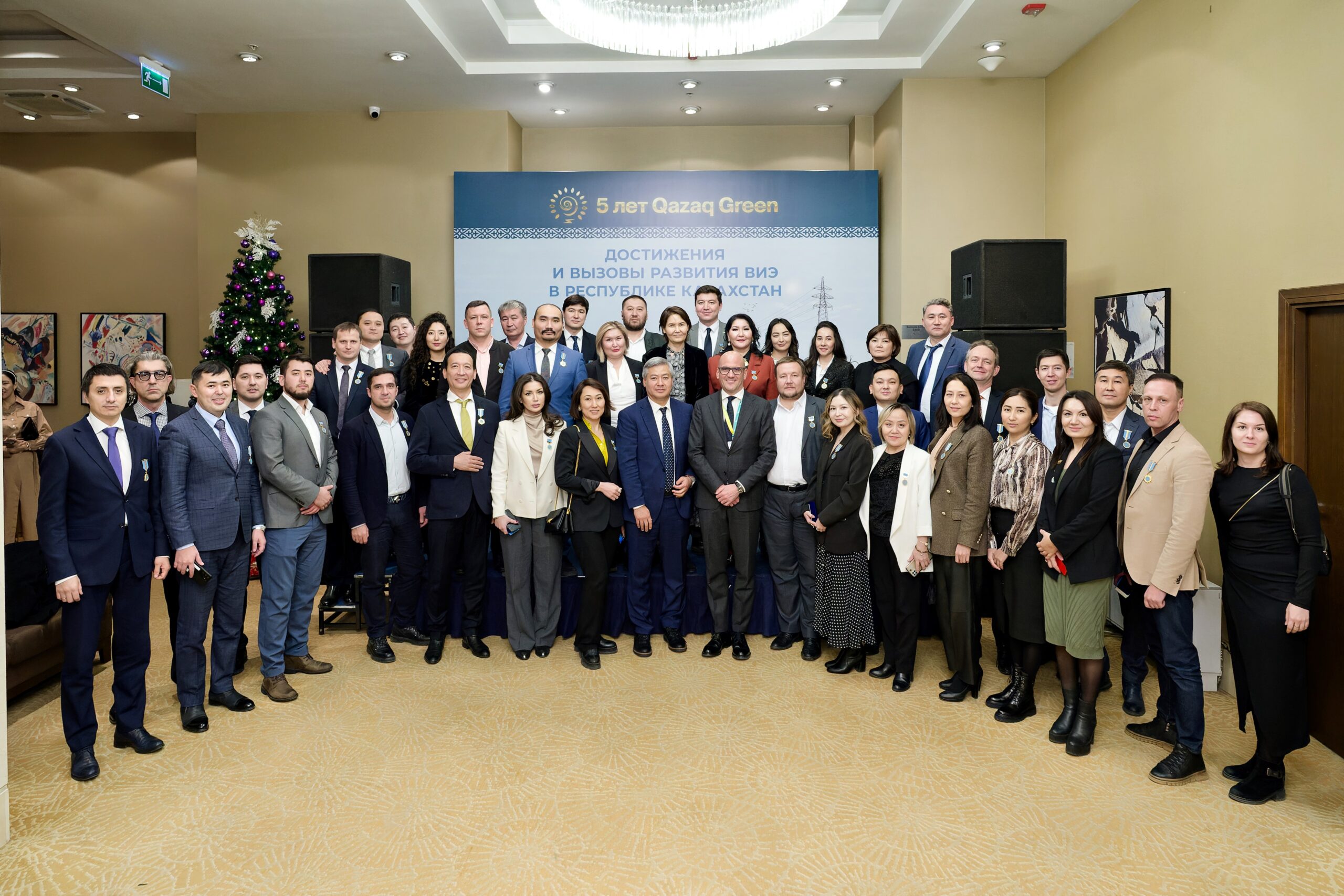ASTANA – A roundtable discussion on the achievements and challenges in the development of Kazakhstan’s renewable energy sector, organized by Qazaq Green renewable energy association, took place on Dec. 7, reported the association’s press service.

Photo credit: qazaqgreen.com.
According to the United Nations Conference on Trade and Development (UNCTAD) World Investment Report – 2023, foreign direct investments (FDI) in renewable energy in Kazakhstan comprised 31% of the total foreign direct investment volume from 2015 to 2022. The country ranks among the top 10 developing countries attracting FDI in the renewable energy sector.
Nurlan Kapenov, the chairman of the association, highlighted Kazakhstan’s historic decision to shift from fixed tariff systems to auction bidding for renewable energy projects. This transition resulted in the establishment of a dynamic market for renewable energy, attracting over 230 companies from 13 countries to auctions.
“Based on the results of the first nine months of 2023, the country generates nearly 6% of electricity from renewable energy sources. Our auctions are recognized nationally and internationally as a fair and transparent mechanism for selecting winners, where the price and project capacity play a crucial role,” he said.
According to Kapenov, the country experienced a record-low price in wind energy this year at 10.38 tenge per kilowatt-hour (kWh) for the construction of a 10.001-megawatt (MW) wind power plant in the Abai Region.
Kazakhstan operates 141 renewable energy facilities with capacities of over 100 kilowatts (kW). Including the decommissioned facilities, the country boasts an installed capacity of 2,715.8 MW.
In the first nine months of 2023, the electricity generated by renewable energy facilities comprised 4.91 billion kWh, accounting for 5.97% of the total electricity production. The breakdown of this production is as follows: wind power comprised 2.6 billion kWh, solar power contributed 1.6 billion kWh, hydropower yielded 760.9 million kWh, and biogas power added 2.25 million kWh.
Established in 2018, Qazaq Green serves as a key expert center for the development of renewable energy in the country, aiming to promote the sector’s growth. The association participates in the development of regulatory documents, conducts informational campaigns to advocate for the green economy, fosters expertise in renewable energy within the corporate sector, and consolidates the business community within the sector.
During the 28th Conference of the Parties (COP28) to the United Nations Framework Convention on Climate Change, the association introduced the Qazaq Green Certificate Program, the first domestic voluntary carbon standard.
Private companies not participating in Kazakhstan’s trade system now have the opportunity to demonstrate their commitment to environmental, social, and governance (ESG) principles and offset their carbon footprint through the acquisition of voluntary offset units. The Qazaq Green Certificate Program enables individuals and corporate entities to contribute to the fight against climate change by purchasing voluntary offset units, thereby reinforcing their dedication to ESG principles.
